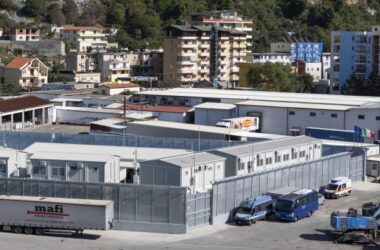The European People’s Party (EPP), the largest political group in the European Parliament, has sounded the alarm over what it sees as the European Union’s growing “bureaucratic burden.”
On January 18, the group, which includes European Commission President Ursula von der Leyen, called for urgent reforms to reduce excessive regulation that’s stifling the bloc’s competitiveness.
While the EPP acknowledged the benefits of harmonized rules for businesses across the EU, it warned that the sheer volume of regulations has become a serious drag on the bloc’s economic vitality. “Excessive regulation and bureaucracy have today become a key reason for the EU’s productivity falling further behind the US and China,” the group stated.
To underscore the issue, the EPP highlighted that the economic gap between the EU and the US has widened significantly, with the EU’s GDP lagging behind by 30% in 2023 compared to 17% in 2002.
In a bold move to curb regulatory overload, the EPP proposed a “one in, two out” approach, suggesting that for every new regulation introduced, two outdated but still functional ones should be scrapped. The group also criticized specific policies like the Corporate Sustainability Reporting Directive and the Corporate Sustainability Due Diligence Directive, labeling them excessive and burdensome with immense trickle-down effects on European businesses.
These directives, which include hefty fines of up to 5% of annual global revenue for non-compliance, have already sparked controversy. Qatar, for instance, threatened in December 2024 to halt oil trade with the EU over the due diligence directive, with its energy minister calling the penalties unacceptable.
The EPP also urged a pause on key aspects of the EU’s Green Deal. It called for delaying the Taxonomy Regulation and the Carbon Border Adjustment Mechanism by at least two years, arguing that the aggressive decarbonization agenda is hurting Europe’s global competitiveness.
Criticism of the Green Deal isn’t limited to the EPP. European car manufacturers have also pushed back, demanding the rollback of CO2 emissions penalties. Meanwhile, Samuel Furfari, an energy geopolitics professor, has blasted the EU’s economic strategy as self-sabotaging. “We are the only ones destroying our competitiveness,” he said in December 2024. “If the whole world followed the EU’s approach, there would be no issue, but that’s not the case.”
The EPP’s concerns come against the backdrop of global economic shifts, including the return of Donald Trump to the U.S. presidency. His proposed trade policies, which include higher tariffs on EU goods, have sparked fears about their impact on member states. A report by the Economist Intelligence Unit singled out Germany as being particularly vulnerable to these potential measures.
With mounting pressure to streamline regulations and adapt to a rapidly changing global landscape, the EPP is doubling down on its call to rebalance EU policy to prioritize economic resilience and competitiveness.




